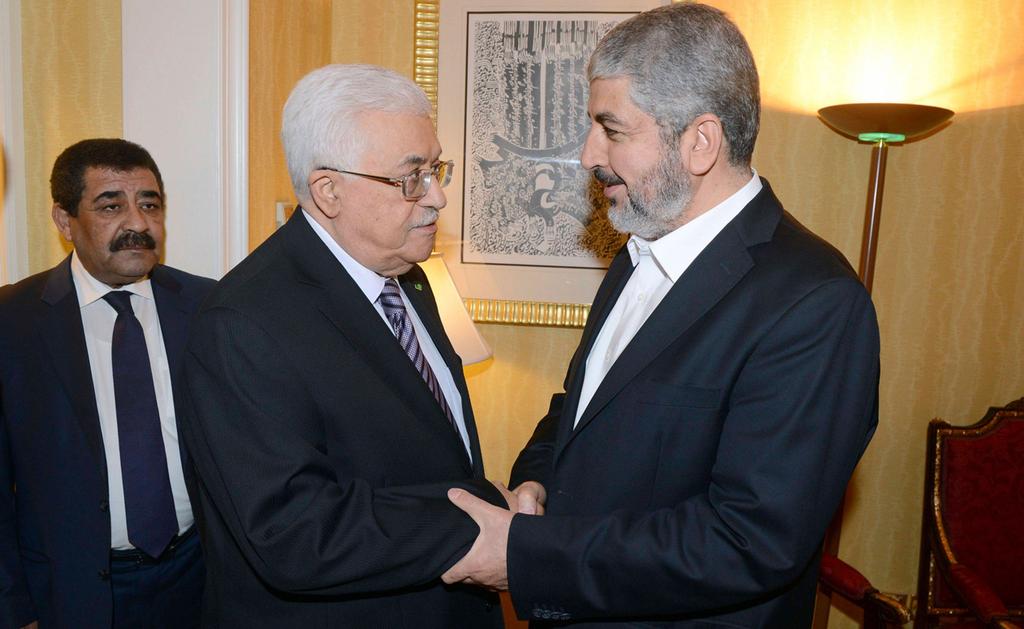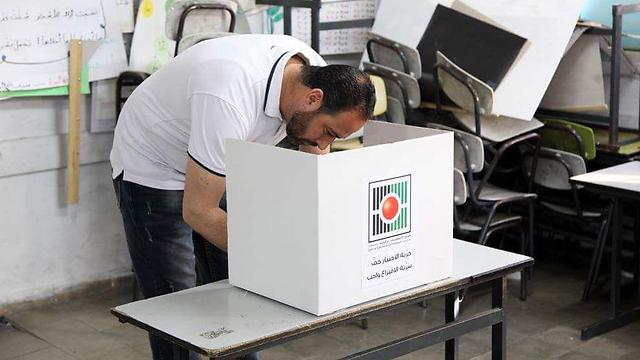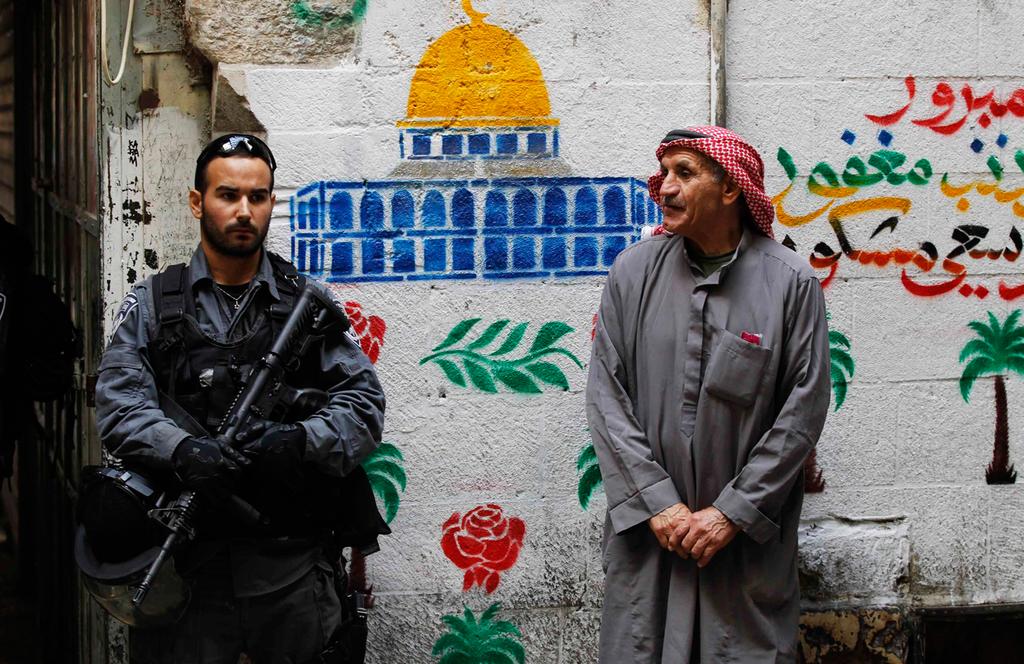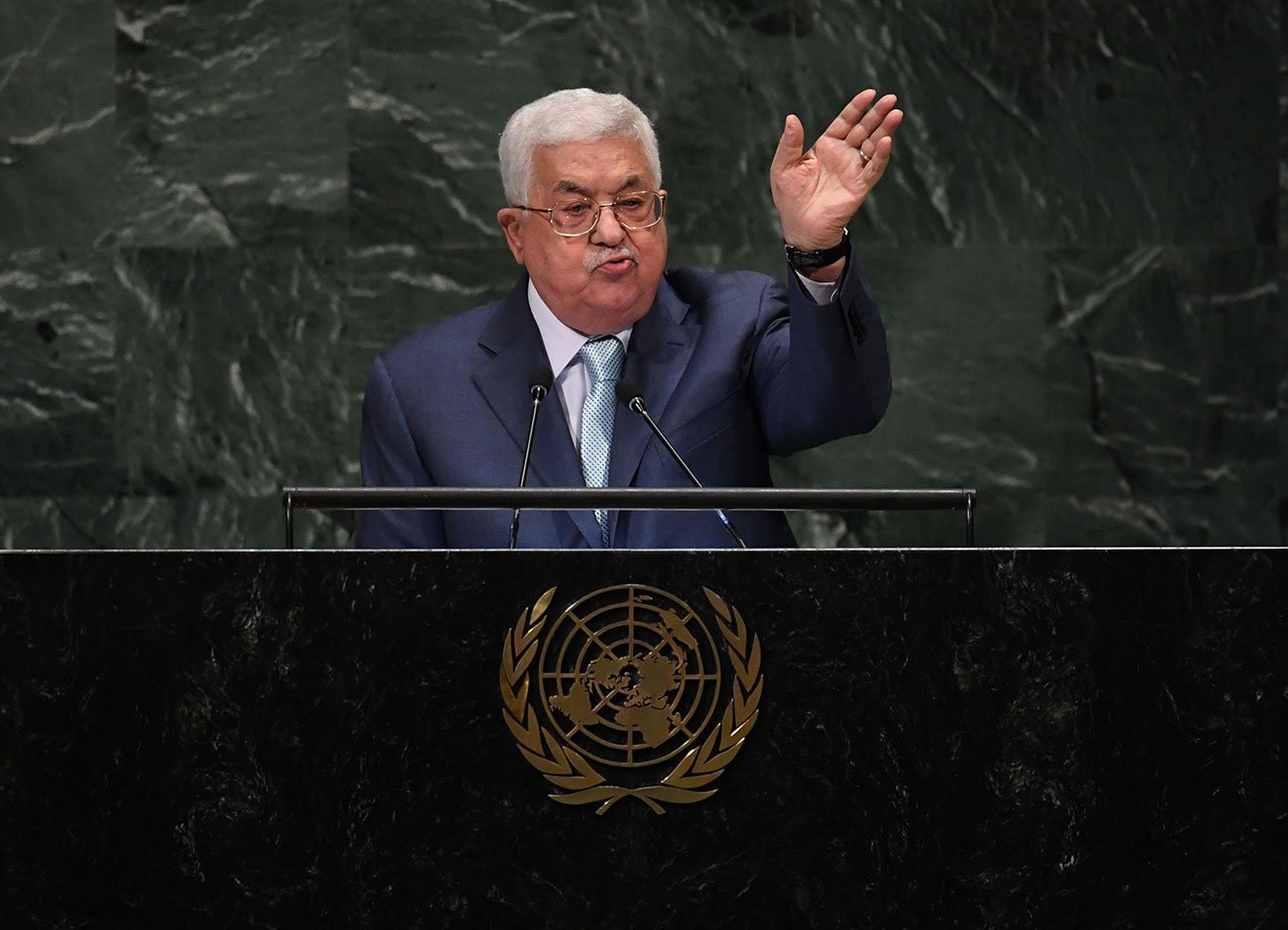Getting your Trinity Audio player ready...
Palestinian President Mahmoud Abbas “isn’t serious about holding elections,” claims a senior Hamas official in Gaza.
The president was supposed to issue a decree last week scheduling elections and he has not been forthcoming on the reason behind the delay, said the Hamas official, who asked not to be identified, by phone from Gaza City.
4 View gallery


Palestinian President Mahmoud Abbas of Fatah and Hamas politburo leader Khaled Mashal meeting in Cairo
(Photo: Reuters/Archive)
He accused Abbas of having a “monopoly” on decision-making and on the future of the Palestinian people.
Abbas had “rejected the national consensus,” he said. “The president’s acquisition of power and his unilateral decision-making is what encouraged Israel and the U.S. to continue their policies toward the Palestinians.”
Abbas’s Fatah and the Islamist Hamas, the two largest Palestinian factions, have been trading punches and exchanging tough words over the elections, each accusing the other of putting obstacles in the way of holding the vote.
The Palestinian Authority has not held parliamentary elections since Hamas won the elections of 2006, nor has it held a presidential vote since 2005, when Abbas won office following the death of Yasser Arafat.
Jihad Harb, a political analyst from the Palestinian Center for Policy and Survey Research, says that there was indeed a delay by the Palestinian presidency in issuing the decree setting the date for the elections. Harb adds, however, that there are also legislative and political obstacles to doing so.
“Legislatively, the president should amend Law No. 1 of 2007 to remove some of the clauses as Hamas has demanded. For example, commitment to the Palestine Liberation Organization as the sole, legitimate representative of the Palestinian people” as a requirement for candidates in the elections.
4 View gallery


A Palestinian man votes in the 2017 municipal elections in the West Bank
(Photo: Archive)
Hamas is not a member of the PLO and has strongly rejected many decisions it took, including the signing of the Oslo Accords with Israel.
But the two parties have several other issues to iron out as well.
“Hamas has demanded a meeting of the Palestinian factions to decide on the electoral process and the future of the Palestinian political project. Also, the two sides have not agreed on which court will be responsible for arbitrating disputes related to elections,” Harb says.
The Palestinian Authority doesn’t recognize its rival’s authority over Gaza, something Harb says will pose a major stumbling block to holding a vote in the Strip.
“Hamas holds power in Gaza and will have its own police force supervision the elections. The PA does not accept that because it doesn’t view the Hamas-run security forces in Gaza as legitimate,” he says.
Harb adds that one of the main hurdles facing the elections was Israel’s reluctance to allow them to take place in East Jerusalem.
“Israel has so far said it won’t allow the Palestinians to hold elections in the city, and that in contrast to the agreements concluded between the Palestine Liberation Organization and Israel, which relate to holding elections for citizens in the city of Jerusalem in accordance with the 1995 election protocol,” he said.
If Israel insisted on blocking Palestinians from holding elections in East Jerusalem, it should be taken to task, Harb said.
“If Israel does not allow that, the ugly side of Israel must be exposed for its lack of respect for the democratic process and its apartheid policies that are in place between the Palestinians and the Israelis,” he said.
The Palestinian leadership has requested permission from Israel to allow PA elections to take place in Jerusalem.
Hussein al-Sheikh, the PA civil affairs minister and a close associate of Abbas, tweeted last week: “We officially asked Israel to allow East Jerusalem residents to participate in legislative and presidential elections in terms of running and voting. We are awaiting Israel’s response.”
4 View gallery


A Border Police officer stands next to a local Muslim resident in East Jerusalem
(Photo: Reuters)
Israel has aggressively cracked down on Palestinian Authority activities in the city, whether they be political, cultural or educational, including arresting the PA governor of Jerusalem at least six times this year. Israel says his activities undermine its sovereignty in the city.
Fatah leader Rafaat Elyan says that elections are the top issue on the PA agenda, stressing that there will be no backing away from the president’s decision to hold the vote in the entire Palestinian territories, including East Jerusalem.
Elyan also disputes Hamas' assertion that the president is reluctant to sign the decree.
“The first one to request the elections was President Abu Mazen [Abbas] and the Fatah movement. Also, the Fatah movement would be the most affected by not holding the elections, as it’s the face of the Palestinians internationally, as Abu Mazen is the president of the Fatah movement and the head of the Palestinian state.”
Elyan doesn’t deny, however, that there are elements in Fatah that object to holding the vote.
“There are some forces within the Fatah movement that benefit from the existing Palestinian situation and the internal political stalemate who do not want elections and wants to delay it. But the driving strategy is to move forward with the elections,” he says.
Abbas announced to the world in September, during the annual United Nations General Assembly meeting in New York, his intention to hold elections in the West Bank, the Gaza Strip and East Jerusalem.
4 View gallery


Mahmoud Abbas speaking at the UN General Assembly in New York in September
(Photo: AFP)
In a meeting in Ramallah last week, he spoke of the need to hold elections to “protect our existence and our cause.”
Ismail Haniyeh, the head of the Hamas politburo, announced that his movement agreed to take part in the elections.
Haniyeh said at a press conference held in mid-November in the coastal enclave that his organization rules that Hamas has “accepted to hold legislative elections followed by presidential elections in a specified period of time.”
Meanwhile in the West Bank, Fatah is holding a series of meetings as part of its efforts to put its house in order.
With Abbas present, the gatherings were to begin Tuesday with a meeting of the Fatah Central Committee, followed Wednesday by a meeting of the Fatah Revolutionary Council, which is considered the party’s parliament.
Elyan says the Palestinians will find a way to hold the election in all the Palestinian territories.
“Conducting elections in Jerusalem is not subject to debate or compromise, as it is the capital of the state of Palestine,” he says.
Palestinians should not be “at the mercy of the Israeli mood,” he adds.
“The [Palestinian] political leadership must devise new ways to vote, employing technology or any other method, so that the Palestinian Jerusalemite citizen can exercise this democratic right,” Elyan says.
"But this does not excuse the international community, including the European Union and all the countries that asked us to hold these elections, from pressuring Israel to allow us to exercise this democratic right."
Palestinian chief negotiator Saeb Erekat told The Media Line in a recent interview that the PA had asked the European Union to “exert pressure” on Israel to allow the Palestinians to hold elections in Jerusalem.
Adding to the already complicated situation is that Israel itself has a date with the voting booth on March 2, 2020, following two inconclusive elections within a year. Harb says this would affect the prospects for a Palestinian vote.
“I believe that the Israeli elections will greatly affect the decision to hold Palestinian elections in Jerusalem, and all right-wing Israeli parties will work to prevent the elections from taking place, given that there they see Israel as sovereign over the holy city,” Harb says.
Article written by Mohammad Al-Kassim. Reprinted with permission from The Media Line

